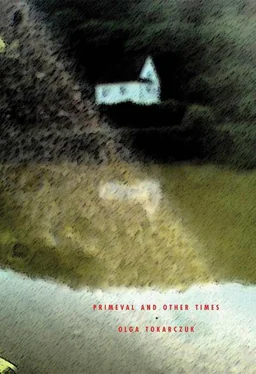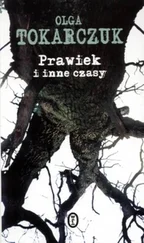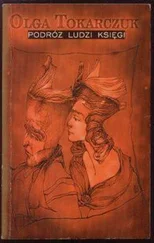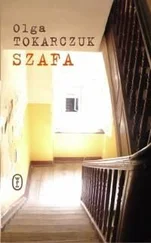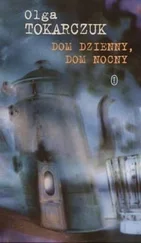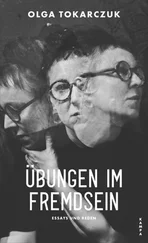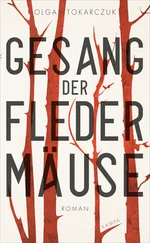When they left for Kraków, the Popielskis were poor as church mice. They lived by selling the silver with aching hearts. The Popielskis’ large family, scattered about the entire world, helped their cousins a bit, as much as it was possible to provide them with some dollars or some gold. Squire Popielski was accused of collaborating with the Germans, for having traded in wood with them. He spent a few months in prison, but eventually he was released in view of his psychological problems, which the bribed psychiatrist exaggerated a little, but not much.
Then Squire Popielski spent days on end pacing from wall to wall in the cramped flat on Salwator Hill, and doggedly trying to lay out his Game on the only table. But his wife gave him such a look that he put it all back in its box and set off at once on one of his never-ending walks around the apartment.
Time went by, and the squire’s wife left a little room in her prayers to thank it for passing, for continuing to move and, by doing so, introducing changes into people’s lives. The family, the entire large Popielski family once again gradually gathered its strength and opened some small businesses in Kraków. Within the scope of an unwritten family agreement, Squire Popielski was assigned to overseeing shoe production, and specifically, the soles for the shoes. He supervised the work of a small plant, where a press imported from the West turned out plastic bases for sandals. At first he did it very reluctantly, but then the whole enterprise drew him in and, as usual for the squire, absorbed him totally. It fascinated him that an amorphous, indefinite substance could be given various shapes. He even began enthusiastically experimenting. He succeeded in making a completely transparent substance, and then gave it various shades and colours. And he turned out to have a good feel for the spirit of the times in the sphere of ladies’ shoes – his plastic knee boots with shiny uppers sold like hot cakes.
“My father even set up a small laboratory. He was the sort of person who, whatever he did, did it with heart and soul, giving it absolute priority. In this respect he was unbearable. He behaved as if those soles and boots of his were going to save humanity. He kept playing around with test tubes and distillations, brewing and heating things.
“Finally because of all those chemical experiments of his he contracted a skin disease, maybe from burns or radiation. In any case, he looked dreadful. The skin flaked off him in whole pieces. The doctors said it was a type of skin cancer. We took him to the family in France, to the best doctors, but there’s no cure for skin cancer, not here nor there. Or at least in those days there wasn’t. The strangest thing was the way he regarded his illness, which we already knew at the time was fatal. ‘I’m moulting,’ he used to say, looking very pleased with himself, proud as Punch.”
“He was a strange man,” said Misia.
“But he wasn’t a madman,” Miss Popielska quickly added. “He had a restless soul. I think he suffered a shock because of the war and having to leave the manor. The world changed so greatly after the war. He couldn’t find his place in it, so he died. He was conscious and cheerful to the very end. I couldn’t understand that, I thought he’d got all confused because of the pain. You know, he suffered terribly, eventually the cancer attacked his entire body, but he kept repeating like a child that he was moulting.”
Misia sighed and drank the remains of her coffee. At the bottom of the glass the brown lava of grounds had gone cold, and glints of sunlight were dancing on its surface.
“He gave instructions to be buried with that strange box, and in the whirl of preparations for the funeral we forgot about it… I have terrible pangs of conscience because we failed to carry out his wishes. After the funeral, Mama and I looked inside it, and do you know what we found? A bit of old cloth, a wooden die, and some little figures, of animals, people, and objects, like children’s toys. And a tattered little book, some sort of incomprehensible nonsense. Mama and I tipped it out onto the table, and we couldn’t believe these playthings were so valuable to him. I remember them as if it were yesterday: tiny brass figures of women and men, little animals, little trees, little houses, little manors, miniature objects, oh, tiny books the size of a little fingernail, for example, a coffee grinder with a handle, a red letterbox, a yoke with buckets – all precisely made…”
“And what did you do with it?” asked Misia.
“At first it all lay in the drawer where we keep the photo albums. Then the children played with it. It must still be in the house somewhere, maybe among the building blocks? I don’t know, I must ask… I still feel guilty that we didn’t put it in his coffin.”
Miss Popielska chewed her lip, and her eyes glazed over again.
“I understand him,” said Misia after a pause. “I used to have a special drawer where all the most important things were kept.”
“But you were a child then. And he was a grown man.”
“We have Izydor…”
“Maybe every normal family has to have a sort of normality safety valve, someone who takes upon himself all those little bits of madness we carry inside us.”
“Izydor isn’t what he looks like,” said Misia.
“Oh, I didn’t mean anything bad by that… My father wasn’t a lunatic either. Or maybe he was?”
Misia quickly denied it.
“What I fear most of all, Misia, is that his eccentricity could be hereditary and could happen to one of my children. But I take care of them. They’re learning English, and I want to send them to the family in France to see a bit of the world. I’d like them to get good degrees – information technology, or economics, somewhere in the West, some practical specialities that give you something. They swim, they play tennis, they’re interested in art and literature… See for yourself, they’re normal, healthy children.”
Misia followed Miss Popielska’s gaze and saw the squire’s grandchildren, who had just come back from the river. They were wearing colourful bathrobes, and they were holding snorkelling gear. They noisily pushed their way through the garden gate.
“Everything will be fine,” said Miss Popielska. “The world is different now from how it once was. Better, bigger, brighter. There are inoculations against illnesses, there are no wars, people live longer… Don’t you think so, too?”
Misia stared into her glass full of coffee grounds and shook her head.
In the Seventh World the descendants of the first people wandered together from country to country, until they reached an extremely beautiful valley. “Come on,” they said, “let’s build ourselves a city and a tower reaching the sky, so that we can become a single nation and not let God break us up.” And at once they got down to work, carrying stones and using tar instead of mortar. A vast city was built, in the middle of which a tower rose, until it was so high that from its top you could see what is beyond the Eight Worlds. Sometimes, when the sky was clear, the people working at the highest point raised their hands to their eyes to stop the sun from blinding them, and saw the feet of God and the outlines of the body of a great snake devouring time.
Some of them tried to reach even higher with sticks.
God looked at them and thought in alarm: “As long as they remain a single people speaking a single language they’ll be able to do everything, anything that comes into their heads… So I’ll mix up their languages, shut them inside themselves and make it so one cannot understand another. Then they’ll turn against each other and give Me peace.” And that was what God did.
Читать дальше
